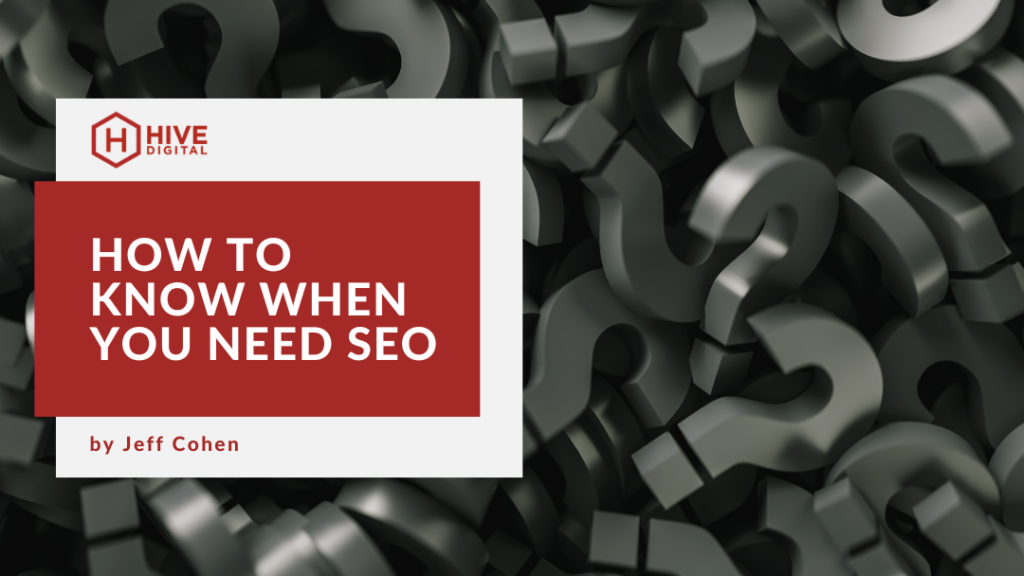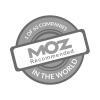In today’s digital age, where online visibility can make or break a business, understanding the significance of Search Engine Optimization (SEO) is crucial. SEO isn’t just a buzzword; it’s a strategic approach that can effectively improve your website’s presence in search engine results and, consequently, your overall online success. In this comprehensive guide, we’ll address the key questions surrounding SEO to help businesses understand why it’s an essential component of their marketing efforts.
What is SEO and why is it important?
The short answer: SEO, or Search Engine Optimization, is the practice of optimizing your website to improve your visibility in the search engine results pages (SERPs). In essence, incorporating SEO strategies into your online marketing efforts will make it easier for the search engines like Google, and Bing (yes, people do actually use Bing) to understand what your website is about and how relevant it is to a user’s search query. The better the search engines understand your site, the better the chance they will show your site higher in the organic search results. And generally speaking, higher rankings translate into more traffic for your site.
But why do people say that SEO is important? The majority of consumers use search engines of some sort to find information about products, services, educational content, entertainment, and more. If your website isn’t showing up in these search results, you’re missing out on a significant opportunity to reach potential customers.
And when you do SEO correctly, it’s not just about attracting more traffic, but rather it’s about attracting quality traffic. A key part of SEO is doing the research to understand how people are searching online, and making sure your content speaks to their needs and interests. By targeting specific keywords related to your business, you can attract the right visitors who are genuinely interested in what you offer, increasing the chances of providing them with the solutions they need and converting them into customers.
What are the top reasons to do SEO?
As mentioned above, the top reason to do SEO is that it helps improve your website’s visibility in organic search results, and in turn, drive more organic traffic to your site. But modern SEO is much more than just cramming a bunch of high-value keywords into your content. Search engines are continually updating their algorithms and what they look for in ranking factors. Modern SEO now takes the overall user experience into account. This includes everything from creating high-quality, compelling content that addresses people’s needs and interest, to ensuring that the website’s code and even UX/UI elements are optimized so that your website loads quickly, provides clear paths to explore, takes into account usability for people with different needs, and much more.
And even beyond that, by analyzing what visitors from your organic channel are doing, SEO can provide insight into your customers. Through tools like Google Search Console and Google Analytics you can see what keywords your customers are using and what pages they engage with, giving you valuable information about their search habits and preferences.
The benefits of SEO go beyond just visibility
Here are some compelling reasons to invest in SEO:
- Increased Traffic: SEO drives more organic traffic to your website, expanding your online reach.
- Better User Experience: SEO involves optimizing your site for a better user experience, which can lead to higher engagement and conversions.
- Data-Driven Insights: SEO tools provide valuable data and insights about your website’s performance and user behavior.
- Long-Term Strategy: SEO isn’t a one-time effort, but rather an ongoing tactic that can provide results over time.
- Competition: To be blunt, if your competitors are investing in SEO and you’re not, you risk falling behind in the online landscape.
- Adaptability: SEO strategies can adapt to changing search engine algorithms and user behaviors, ensuring your site remains relevant.
Is SEO needed with a small business?
Absolutely! SEO isn’t just for large corporations; it can be a valuable strategy for businesses of all sizes, including small ones.
Small businesses often serve a local market for their clientele. This is where local SEO comes in. Local SEO involves optimizing your business for local search results. This includes tactics like understanding how to optimize for location based keywords, claiming your Google Business listing, and encouraging customer reviews. This helps ensure that when someone in your area searches for the products or services you offer, your business shows up in the search results and map listings.
For small businesses, SEO allows you a chance to compete next to larger businesses by getting your brand in front of potential customers who are actively searching for what you offer. Even if you can’t compete with larger companies on a national level, you can focus on your local search results and reach the customers most likely to visit your business.
And for businesses that don’t yet have the budget for paid efforts or the staff to maintain a social media presence, SEO can be a more cost effective way to ensure your website has a strong foundation for your online presence.
What happens if you don’t use SEO?
We get it. You may have heard that SEO is outdated, or maybe you know someone that had a bad experience with an SEO consultant in the past. This article really isn’t about the hard sell, but we’d be remiss if we didn’t at least touch on what you may be missing out on if you choose not to incorporate SEO best practices for your website.
The short answer is, at the very least, if you’ve invested money in building a website, you’ll want to make sure people find it. That’s why we’d strongly suggest doing some level of SEO effort. Whether you choose to work with a consultant once to get things set up properly, or even do some DIY research to get the basics in place yourself.
Here are a few potential consequences of not using SEO:
- Lack of visibility: Your website may not show up in relevant search results, making it harder for potential customers to find you.
- Missed or wrong traffic: With decreased visibility comes lower organic traffic to your site or the chance to drive visitors that would never convert.
- Increased marketing costs: Without SEO, you may need to rely more heavily on paid advertising, which is a great channel to utilize for many businesses, but that ROI can diminish if it’s the only channel you’re using.
- Less competitive: SEO is a common strategy used by many businesses. Not using SEO could put you at a disadvantage compared to competitors who do.
When should you not use SEO?
Now there are some SEO consultants and agencies that may not want you to know this, but there actually are some cases where SEO might not be the best option for your needs. While SEO can be an essential part of most online marketing strategies, it really is important to consider your specific business needs, audience behavior, and timing when deciding whether you’re ready to invest in these efforts.
In fact, in some cases it may not always be the right strategy for every business or situation. Here are just a few scenarios where investing heavily in SEO might not be the most effective use of your marketing resources.
- Very Short-Term Goals: If you have extremely short-term goals and need immediate results, SEO might not be the best strategy. In such cases, paid advertising would be more suitable.
- Irrelevant Audience: If your product or service doesn’t have a clear online audience, SEO efforts might not yield significant results.
- Non-Existent Online Presence: If your business doesn’t have a website or any online presence, you should establish a basic online presence before diving into SEO.
Hyper localized or limited volume business: If your business focuses on very local customers or has limited inventories (like local artisanal products, custom order items, crafts, baked goods, fitness coach, etc.) then you’d probably be better served by maintaining a more active presence in social media platforms where your audience is.
Integrating SEO with Other Digital Marketing Channels
It’s important to remember that while SEO can drive a good chunk of your traffic and conversions, it can also provide useful insights not just for business insights, but for other marketing channels as well. A well-rounded digital marketing strategy should integrate SEO with other methods like PPC, email marketing, and display advertising to create a comprehensive and effective approach to online marketing.
PPC and SEO actually go great together. For instance, keyword research conducted for SEO purposes can also inform your Pay-Per-Click (PPC) advertising strategy. The same keywords that help your website rank organically in search results can be used to target ads to the right audience. And vice versa, ad messaging can be a great way to help test and validate messaging to help refine on-page website content and even meta titles and meta descriptions.
Email marketing can also benefit from SEO insights. The knowledge you gain about your audience’s interests and search behavior can help you create more targeted and engaging email content. Conversely, promoting your content through email can drive more traffic to your site, thereby improving your SEO.
Utilizing SEO for your online efforts
Whether you’re a small business or an enterprise, investing in SEO can deliver trackable and sustainable results that will help you reach your digital marketing goals and stay ahead of the competition. Remember, SEO works best when it’s not a one-time effort but a long-term investment. It requires regular monitoring and adjustment as user behavior and search engine algorithms change. If you’re concerned about your website’s visibility, content quality, or user experience, it might be time to consult with an SEO expert (I happen to know a few if you’re interested) who can help you boost your online marketing efforts and reach your target audience.










